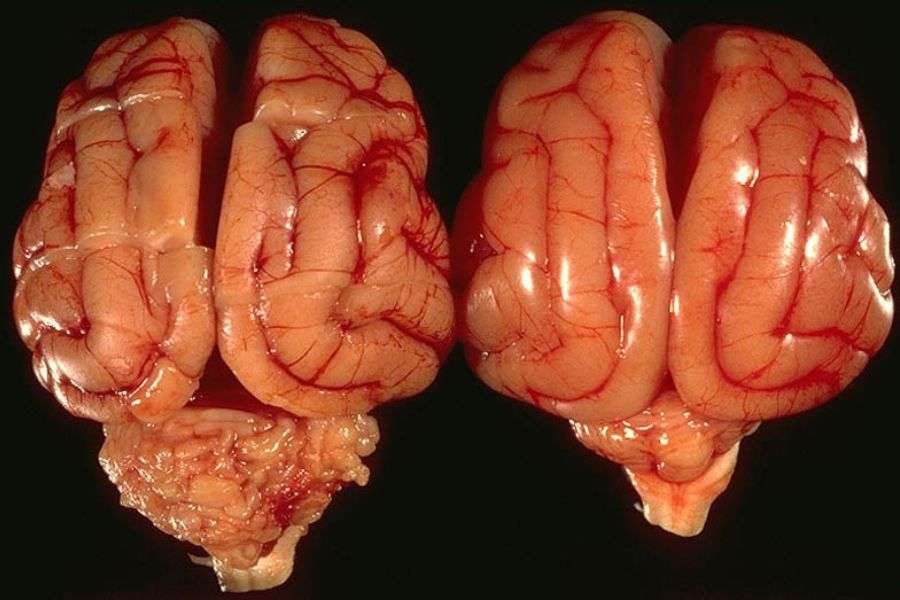Cerebral Hypoxia
Overview

Cerebro Oculo Facio Skeletal Syndrome (COFS) is a sporadic and severe genetic disorder that primarily affects the development of the brain, eyes, face, and skeletal systems.
Individuals with COFS typically exhibit profound intellectual disability, microcephaly (abnormally small head), facial abnormalities, and joint contractures. The disorder often leads to early mortality, with affected individuals experiencing severe health complications.
COFS is believed to result from mutations in specific genes, impacting the normal growth and function of various tissues during embryonic development. Due to its rarity and the severity of symptoms, COFS poses significant challenges in terms of diagnosis, treatment, and management.
Symptoms
• Impaired cognitive development: Children may face delays or difficulties in learning, speaking, and problem-solving, varying in severity.
• Abnormally small head (microcephaly): A common feature causing neurological and developmental issues.
• Reduced muscle tone (hypotonia): Weak muscles and movement difficulties leading to developmental delays.
• Impaired reflexes: Affecting automatic responses to stimuli, such as tapping the knee with a reflex hammer.
• Impaired vision: Problems including nearsightedness, farsightedness, and difficulty tracking moving objects.
• Involuntary eye movements: Rapid, uncontrollable eye movements affecting focus and eye contact.
Causes & Risks
• COFS syndrome: rare genetic disorder impacting brain and body development.
• Linked to mutations in ERCC1, ERCC2, ERCC5, and ERCC6 genes.
• Genes crucial for DNA repair, mutations result in severe developmental abnormalities.
• Typically diagnosed in infancy or early childhood based on clinical features.
• No cure is available; treatment focuses on symptom management and supportive care.
• Treatment tailored to individual symptoms and requirements.
Test & Diagnosis
• COFS syndrome often diagnosed at birth due to characteristic symptoms.
• Ultrasound technology can detect COFS fetuses early in pregnancy.
• Infants with COFS typically need oxygen supplementation for respiratory distress in the neonatal stage.
• Feeding difficulties often require tube feeding.
• Most affected newborns succumb by 4-5 years due to chronic respiratory infections.
• Chronic infections lead to severe failure to thrive and developmental delays.
Treatment
• No cure exists for COFS; treatment centers on symptom management and supportive care.
• Options include feeding tubes for eating difficulties and physical therapy for rehabilitation.
• Genetic counseling aids in understanding the disorder's implications for future generations.
• Coping with COFS poses challenges, yet with appropriate care and support, individuals can lead fulfilling lives.
• Emphasis on managing symptoms and providing necessary support for individuals with COFS.
• Genetic counseling offered to families to comprehend the disorder's implications for future generations.
Living With
Living with Cerebro-Oculo-Fascio-Skeletal (COFS) syndrome is a severe and progressive condition that affects various aspects of an individual's life. Those diagnosed with COFS syndrome face complex medical needs, developmental challenges, physical limitations, visual impairment, communication difficulties, complex care needs, and quality of life considerations.
Families providing care for individuals with COFS syndrome may face significant emotional, financial, and practical challenges. Unfortunately, COFS syndrome is associated with a shortened lifespan due to the severity of the condition and the challenges it presents.
Emotional and social support are essential for both individuals and their families to cope with the challenges of living with COFS syndrome.
Complications
• Complications include progressive brain abnormalities, visual impairment, muscle stiffness, joint contractures, skeletal abnormalities, seizures, developmental delays, respiratory issues, feeding and swallowing difficulties, growth problems, and decreased life expectancy.
• COFS syndrome profoundly affects the quality of life and independence.
• Early diagnosis and intervention aid symptom management and outcomes.
• There's currently no cure for COFS syndrome.
• Continuous research and support are vital for affected individuals and families.
• These efforts aim to improve understanding and enhance the quality of life for those with COFS syndrome.

The Content is not intended to be a substitute for professional medical advice, diagnosis, or treatment. Always seek the advice of your physician or other qualified health provider with any questions you may have regarding a medical condition.
Know more about
Our Healthcare Planner
Personal Health Planner at BNC is a support staff who listens to your concerns and connects you with a Neuro Care provider. They prioritize your needs and create a trusting relationship between you and the provider.
Three fundamental values we can assure you:
1. Personalized Healthcare.
2. Most advanced robotic therapies
3. Transparent pricing





